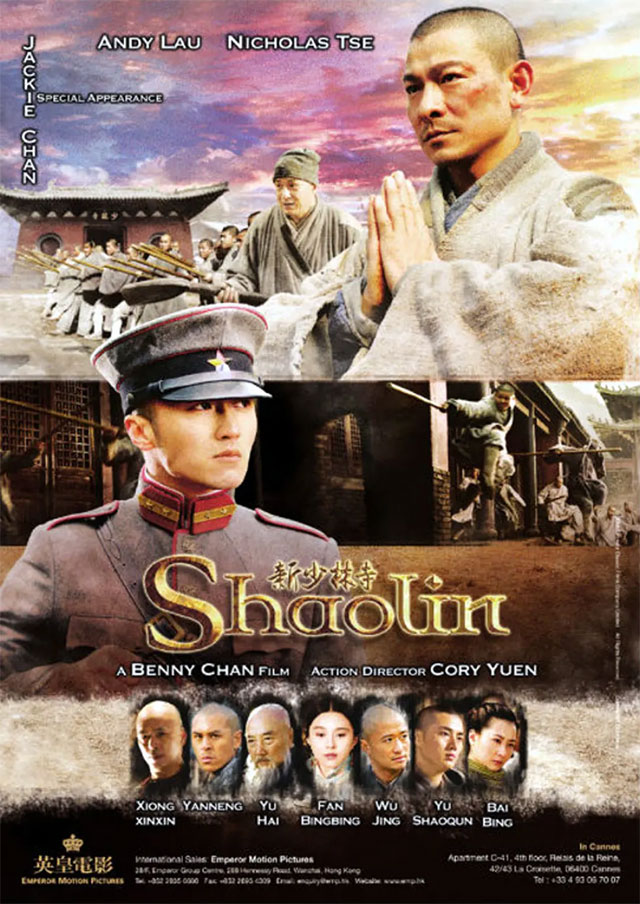Film Name:新少林寺 / Shaolin
图1

As one of the most talked about blockbusters of the year, 《Shaolin》 is naturally no exception. Whether it’s the construction of the Shaolin Temple scene, the design of the fight scenes or the post-production of special effects, the film creates a “blockbuster” atmosphere. The protagonist of the film is the warlord Hou Jie, played by Andy Lau, who is ruthless and willing to kill not only his enemies but also his brothers in order to achieve his goals. His credo is “when you are in the upper hand, if you don’t kill the enemy, he will come to kill you in the future”, and not only does he practise this theory himself, he also teaches it to his subordinate, Cao Ban, who later plots to assassinate him. It is estimated that Hou Jie would not have thought that his trained little brother Cao Barbara would kill him in a big way. In this killing, Hou Jie was seriously injured and his daughter was dying. He carried his daughter to the Shaolin Temple to ask for help, but in the end, his daughter could not be saved. After this baptism of blood and rain, in the Shaolin Temple master Zen teachings, Hou Jie slowly put down the hatred and greed, decided to convert to Buddhism, in the Shaolin Temple during that time, the kindness and compassion in his heart slowly be inspired. In the face of Cao Barbarian’s onslaught of murder, Hou Jie saved him in the nick of time, even at the cost of his own life, which shook Cao Barbarian to the core. At the end of the film, Cao Ban is also touched by the kindness of Buddha, and converts to Buddhism to be taught by Hou Jie.
In the film, the first protagonist Andy Lau’s performance is remarkable, whether it is the evil and ruthlessness at the beginning or the kindness and goodness at the end, all of them are interpreted appropriately. Although his “kung fu” is not as good as Jet Li’s, this does not affect the interpretation of the role, because he plays a warlord in 《Shaolin》, not a monk at the beginning, naturally, the “kung fu” scenes are not so heavy ink. The film focuses more on the spirit of the Shaolin Temple, the Buddha’s compassion and love, and through Andy Lau’s character, it shows how Zen can change a person’s state of mind, from great evil to great goodness, and from mutilation to redemption. Nicholas Tse’s performance in the film is not as impressive as Andy Lau’s, in the performance of the role more or less his shadow in the 《Master of the Crimson Armor》; Fan Bingbing, as the film’s only female protagonist, does not have much of a breakthrough in performance, looking at it is also very much her shadow in the 《Bodyguards and Assassins》; Jackie Chan is not the main character in the film; he is not the main protagonist. Jackie Chan’s role in the film does not focus on “kung fu”, but his dialect is more of a funny element for the film; as for the kung fu character Wu Jing, he is also a bit of a middle-of-the-road character in the film.
Although 《Shaolin》 also has many killing and fighting scenes, what it wants to interpret is the Buddha’s compassion and goodness, the film adds Zen, which also makes it more deep and profound, all the wars and killings are because of greed and hatred, only compassion and love can make individuals eliminate their demons, get happy and relaxed, and let the world become peaceful and harmonious. Everything is as it should be, and there is goodness in the heart.
Please specify:Yescase Store » Shaolin 2011 Film Review: A spiritual redemption